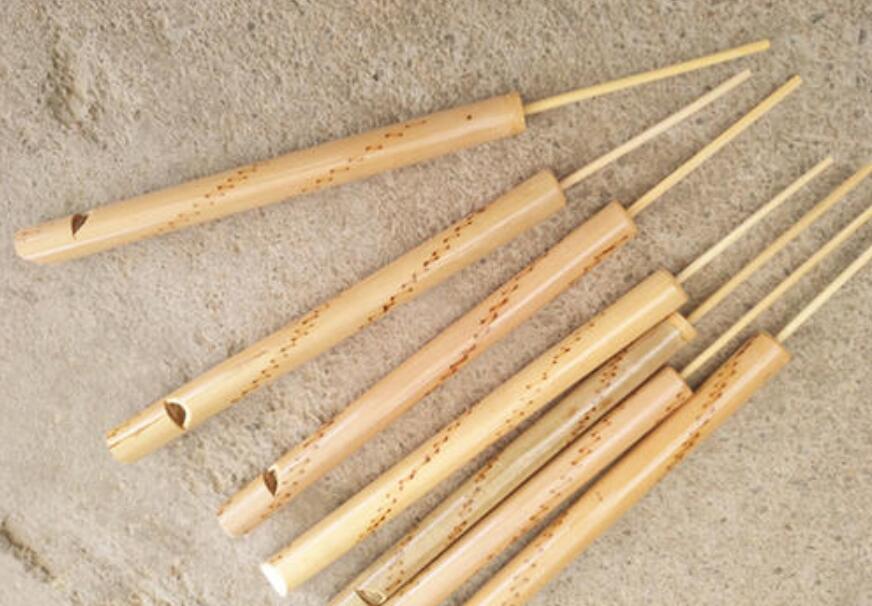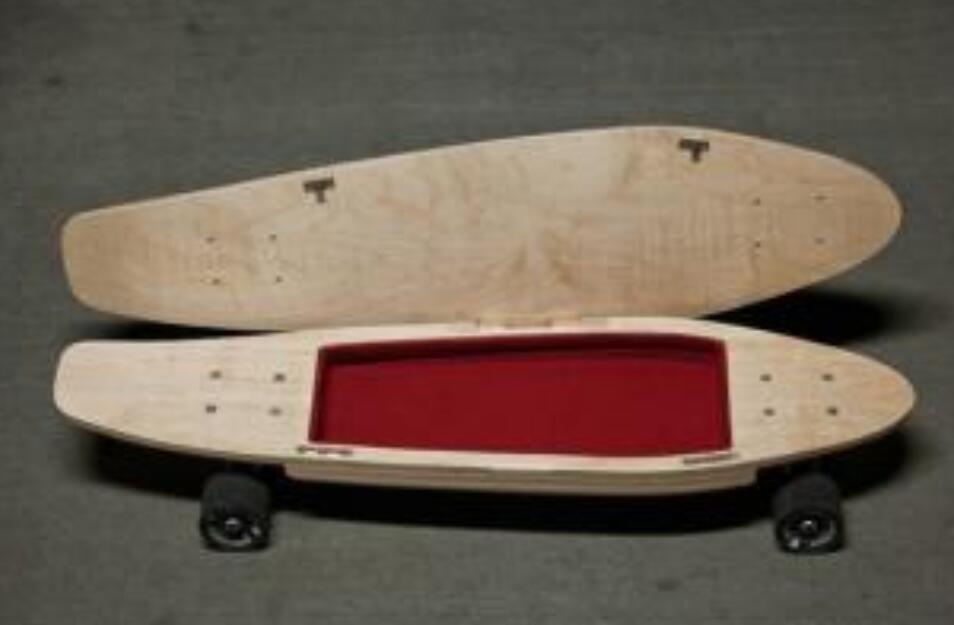
作文一:《英语一般过去时》5100字
一般过去式The past Indefinite tense
1.概念:
过去某个时间里发生的动作或状态;过去习惯性、经常性的动作、行为;
2.时间状语:
ago, yesterday, the day before yesterday, last week, last (year, night,
month…), in 1989, just now, at the age of 5, one day, long ago, once upon a
time(很久以前), etc.
3.基本结构:
be动词;行为动词的过去式
4.否定形式:
was/were+not ; 在行为动词前加didn't,同时还原行为动词。
5.一般疑问句:
was或were放于句首;用助动词do的过去式did 提问,同时还原行为动词。
6.例句:
She often came to help us in those days.
I didn't know you were so busy.
一般过去时表示
(1)过去某个特定时间发生,也可以表示过去习惯性的动作。一般过去时不强调动作对现在的影响,只说明过去。
句式:主语+过去动词+其他
I had a word with Julia this morning.今天早晨,我跟朱丽亚说了几句话。
(1) He smoked many cigarettes a day until he gave up.
他没有戒烟的那阵子,抽烟抽得可凶了。
(2) 一般过去时常与表示过去的时间状语或从句连用,如:yesterday, last week, in
1993, at that time, once, during the war, before, a few days ago, when 等等。
一般过去时的基本用法
1 带有确定的过去时间状语时,要用过去时
如:yesterday(昨天)、two days ago…(两天前…… )、last year…(去年…)、the other day(前几天)、once upon a time(很久以前)、 just now(刚才)、in the old days(过去的日子里)、before liberation(解放前…)、 When I was 8 years old(当我八岁时…)、at+一个时间点
Did you have a party the other day,
前几天,你们开了晚会了吗,
Lei Feng was a good soldier.
雷锋是个好战士。
注意:在谈到已死去的人的情况时,多用过去时。
2 表示过去连续发生的动作时,要用过去时
这种情况下,往往没有表示过去的时间状语,而通过上下文来表示。
The boy opened his eyes for a moment,looked at the captain,and then died.
那男孩把眼睛张开了一会儿,看看船长,然后就去世了。
3 表示过去一段时间内经常或反复的动作
常与always,never等连用。
Mrs. Peter always carried an umbrella.
彼得太太过去老是带着一把伞。(只是说明她过去的动作,不表明她现在是否常带着伞。)
比较
Mrs. Peter always carries an umbrella.
彼得太太老是带着伞。(说明这是她的习惯,表明她现在仍然还习惯总带着一把伞)
Mrs. Peter is always carrying an umbrella.
彼得太太 总是带着一把伞。(表示说话者对这一动作或行为厌烦)
I never drank wine.我以前从不喝酒。(不涉及到现在,不说明现在是否喝酒)
4 如果强调已经终止的习惯时要用 used to do(过去常常做,而现在不那样做了)
He used to drink.
他过去喝酒。(意味着他现在不喝酒了。喝酒这个动作终止了)
I used to take a walk in the morning.
我过去是在早晨散步。(意味着现在不在早晨散步了)
比较:
I took a walk in the morning.
我曾经在早晨散过步。(只是说明过去这一动作)
5 有些句子,虽然没有表示过去确定时间的状语,但实际上是指过去发生的动作或存在的状态的话,也要用过去时
I didn't know you were in Paris.我不知道你在巴黎。
(因为在说话时,我已经知道你在巴黎了。这句话指的是说话之前,所以只能用过去时表示。实际上,这句话暗指:But now I know you are here.)
I thought you were ill.我以为你病了呢。(这句话应是在说话之前,我以为你病了。但是现在我知道你没病)
主动:
肯定? be 分为was, were ? v+ed
否定? was/were not ? didn’t+v
疑问? was/were+ 主 ? did+主+V
时间状语:
1. yesterday (morning, afternoon, evening)
2. the day before yesterday
3. last night (week, Sunday, weekend, month, winter, year, century 世纪)
4. ago
5.in 1980 (过去年份)
6.this morning/afternoon/evening
7.when引导的状语从句 (过去)
8.in the past
9.just now
10.the other day -- a few days ago
去年龄段) 11.at the age of 10 (过
12.in the old days
动词过去式规则变化
1 直接+ed eg :work worked ,
2 以不发音的e结尾的,+d eg:live lived , 3 以辅音字母+y结尾的,变y为i+ed eg:study stuied , 4 以重读闭音节结尾的,双写最后的辅音字母+ed eg: stop stopped ,
不规则变化
例如相等 eg:cut cut read read sit sat
句型结构
1.一般句子
I watched TV last night.
2.一般疑问句
Did you watch TV last night?
3.there be 句型
There was an apple on the table last night.
Was there an apple on the table last night?
一般过去时口诀
一般过去时并不难,表示过去动作、状态记心间。
动词要用过去式,时间状语句末站。
否定句很简单,didn't 站在动词原形前,其它部分不要变。
一般疑问句也好变,did放在句子前,主语、动词原形、其它部分依次站。
特殊疑问句也简单,疑问词加一般疑问句记心间。
最后一条请注意,动词过去式要牢记。
一般过去时的练习
I.用所给的动词的适当形式填空。
?He _____(visit) the Great Wall last year.
2.We________(have) a good time yesterday.
3.We often _______(go) to school by bus last year. 4.I ________(live)in the countryside when I was a child. 5.Jane ______(see) a big tiger in the park last year. 6.Tom _____ (do) the housework yesterday.
7.______(do) you _______(enjoy) yourself yesterday? 8.______(do)you _________(play) the guitar in the artroom yesterday?
No, I didn't. I_____(draw)some pictures there. 9.. I ______ (eat) a big cake yesterday.
10.There ____ (be) many sheep on the farm last year. 12. Her father _______ (read) a newspaper last night. 13. We _________ to zoo yesterday, we _____ to the park. (go) 14. ______(do) you _______ (visit) your relatives(亲戚) last Spring Festival? 15. ______ (do)he _______ (fly) a kite on Sunday? Yes, he ______.
II.选择填空
( ) 1. She watered(浇水) the flowers ________.
A tomorrow B sometimes
C yesterday morning D tomorrow morning
) 2.What ____ Mike do last weekend ? (
A do B does C did D was
( ) 3. I ___ my room last Sunday.
A cleaned B clean C am cleaning D cleaning ( ) 4. I often help my mother _____ housework.
A does B did C do D is
) 5. _____ you _____ TV last night . (
A Do, watch B Did, watch C Did, watched D Do,watches
( ) 6.— Did your father write an e-mail yesterday ,
— _____
A Yes, he did. B Yes, he does
C No, he don’t D No,he doesn’t
( ) 7.They _____ on a trip in February ,2007.
A are going B going C t D are t ( ) 8. ____ he ____ football two days ago?
A Does , play B Did , played
C Did , play D Does,played
( ) 9.—Good afternoon, Miss Lee. How does Mike feel(感觉)?
—He’s tired.(累的)He ____ a lot of work ______ .
A does , this morning B do , this morning C did , this morning
作文二:《英语 ----一般过去时》1600字
一、基本结构
一般过去时用动词的过去式构成,一般来说,即在动词原形后加ed。
eg:
He was here just now. 他刚才还在这里。
What did you do yesterday? 你昨天做了什么事?
We often played together when we were children. 我们小时候常在一起玩。
He used to smoke a lot, but he doesn’t now. 他过去经常抽烟,但现在不抽了。
Whenever we were in trouble, he would help us. 每当我们遇到困难,他都会帮助我们。
At that time she was very good at English. 那时她英语学得很好。
He said he would wait until they came back.
二、时态详解
主要是用来描述在过去某个时候发生的动作或存在的状态。它也可以用来表示在过去某段时间里经常发生的习惯性动作。这一点在表达意义上与一般现在时相同,只是所在的时间区域不同而已。
由于它的主要作用如此,所以在使用一般过去时的句子里常常有一个意义较具体的过去时间状语。这也是它与现在完成时的
最大区别之一。
一般过去时由谓语动词的过去式表示,也就是说动词词末要加-ed(除不规则动词外)。
常和一般过去时连用的过去时间状语有:last night (week ,month , year , century , etc.) , yesterday , the day before yesterday , yesterday morning ( afternoon , evening ) , in 1999 , two hours ago ( one week ago , tree years ago , …)等等。
使用一般过去时,在某种意义上说就是要强调动作或状态发生或存在于过去的某个时候。"过去"的时间概念有两层意思:
一是指"现在某个时间"以前的时间;
二是指"说话、写文章的那个时间点"以前的时间,在这个意义上,"现在的那个时间点"是很小很小的,甚至于小到无法量化的程度。
eg:
He got his driving license last month. 他上个月拿到了驾照。
——Where's Jim? 吉姆在哪里?
——He just t out.他刚刚出去。
三、一般过去时表示现在
1.在宾语从句中,由于时态呼应的关系,可用一般过去时表示现在。
I didn’t know you were here. 我不知道你在这儿。(were实际上指现在)
I didn’t know you were so busy〃我没想到你这么忙。。(were实际上指现在)
2.表示客气委婉的现在。
I wondered if you were free this evening. 不知您今晚是否有空。
I thought you might like some flowers. 我想您也许想要些花。
【注】能这样有的动词主要限于want, wonder, think, hope, intend等少数动词。
3.用于某些特殊结构中表示现在。
It’s time we started. 我们该动身了。
I wish I knew his name. 要是我知道他的名字就好了。 I’d rather you lived closer to us. 我希望你能住得离我们近点。
【注】该用法主要用于 it’s time, I wish, I’d rather, if only, as if, as though 等少数结构后接从句的情形,其中有些结构后面的句子还可用一般过去时表示将来。
eg:I’d rather you came next Monday. 我宁愿你下周星期一来。
4.另外表主观想法的虚拟条件句也用一般过去时表示现在。
If I had the money now I’d buy a car. 假若我现在有钱,我就买辆小汽车。
作文三:《英语一般过去时》1600字
一般过去时
一、概念 一般过去时用来表示过去某一时间内发生的动作或存在的状态以及过去习惯性、反复性的动作。谓语动词要用动词的过去式,常和表示过去的时间状语连用,如yesterday昨天、last night昨晚、last week上周、last year去年、…ago等
二、结构
1. Be动词的一般过去时 在没有实义动词的句子中使用be动词
am is 的过去式为was; are的过去式为were,was是表示单数,were是表示复数
肯定句式:主语 + be(was , were) + 其它.
否定句式:主语 + be(was , were) + not + 其它.
一般疑问句:Be(was , were) + 主语 + 其它?
2. 实义动词的一般过去时态 肯定句要使用动词的过去式,否定句和疑问句要使用助动词did.
肯定句式:主语 + 动词(过去式)+ 其它
否定句式:主语 + didn’t + 动词(原形)+ 其它 【did not = didn’t】 一般疑问句:Did + 主语+ 动词(原形)+ 其它【do , does的过去时均为did】? 注:did和didn’t 跟动词的原形
三、规则动词的过去式
1.一般情况下,在动词原形后面加-ed:looked played started visited stayed
2.以不发音e结尾的动词,在词尾直接加-d: lived cloesd liked loved tasted
3.以“辅音字母+ y”结尾的动词,先将 y 改为i ,再加 –ed:
study→studied try→tried cry→cried copy→copied carry→carried
4.以重读闭音节(即辅音+元音+辅音)或r音节结尾,末尾只有一个辅音字母的动词,要先双写这个辅音字母后,再加 –ed: stop→stopped plan→planned
四、不规则动词的过去式需特殊记忆
1. is→was am→was are→were do→did have→had
2. begin→began ring→rang run→ran drink→drank sing→sang swim→swam
sit→sat give→gave make→made e→came eat→ate
3. write →wrote speak→spoke drive→drove choose→chose tell→told ride→rode
shoot→shot get→got win→won forget→forgot
shake→shook take→took stand→stood
4. go→t meet→met sleep→slept sweep→swept spell→spelt feel→felt keep→kept spend→spent bend→bent
5. know→knew fly→flew blow→blew grow→grew throw→threw
draw→drew 特别注意:glow→glowed
6. teach→taught catch→caught buy→bought fight→fought think→thought
7. find→found hear→heard say→said lie→lay see→saw learn→learnt mean→meant
8. put→put read→read cut→cut let→let
作文四:《英语,一般过去时》700字
1. 一般过去时的定义
一般过去时表示过去某一时候或某一段时间所发生了的事情或存在的状态。常与过去时间yesterday,this morning,just now, ago,last night,year,week, the other day, before连用。如:
What did you do yesterday?
I met Lin Tao this morning.
I was there a moment ago.
2. 一般过去时的应用
(1) 表示过去某时所发生的动作或存在的状态。如: Liu Ying was in America last year.
Jim rang you just now.
(2) 表示过去经常或反复发生的动作。常接时间副词often, usually, always, sometimes, every day 如:
We often t out for a walk after supper.
We usually played together.
3. 一般过去时动词的变化:
(1) 一般在动词后加-ed。如:play—played, offer—offered, weigh—weighed, destroy— destroyed, sign—signed.
(2) 在以字母e结尾的动词后,只加-d。如:like—liked, provide—provided, hate — hated, date—dated。
(3) 在以“辅音字母+y”结尾的动词后,则改y为i,再加—ed。如:supply—supplied, fly—flied, study— studied.
作文五:《英语一般过去时》3800字
本团队专业为您 百度充值 文档下载 百度账号打造 豆丁充值 出售豆丁账号等文档类服务业务 有需要
的速度来哟 QQ530226349
一般过去时练习题
一、 单项选择
( )1. She lived there before he ____to China.
A. came B. es C. e D. ing
( )2. I _____but_____ nothing.
A . was listened; was hearing B. listened; heard
C . have listened; heard D. listened; heard of ( )3. When did you ____here?
A. got to B. reached C. arrive in D. reach ( )4. I____ my homework at 7:00 yesterday evening.
A. finished B. would finish C. was finishing D. finish ( )5. -He didn't go shopping with you yesterday afternoon, did he?
- _______.
A. No, he doesn't B. Yes, he didn't C. No, he did D. Yes, he did. ( )6 -I have had supper.
- When ____you ____ it?
A. have; had B. do, have C. did, have D. will have
. He ________ a letter to his family last Sunday. ( )7
A. wrote B. write C. writes D. has written ( )8. There was a strange sound outside. Mary t out and ______ around, but
she ________ nothing.
A. looked, saw B. saw, saw C. watched, looked D. looked, find ( )9- Who cleaned the blackboard yesterday, Dick? - John ________.
A. cleaned B. does C. did D. is
( )10. After the game they ________ the last bus, so they had to take a taxi.
A. took B. caught C. saw D. missed
二、 填空
1. They________(be) on the farm a moment ago.
2. There________ (be) a shop not long ago.
3. Jenny__________(not go) to bed until 11:00 o'clock last night. 4. Danny ________(read ) English five minutes ago.
5. I ______ (see) Li Lei _________(go) out just now.
6. He ______(do) his homework every day. But he _________(not do) it yesterday. 7. When I was young, I _______(play) games with my friends. 8. When _____you______ (write) this book? I ________(write) it last year. 9. Did he_________(have) lunch at home?
10. I _______ (eat) some bread an hour ago, so I 'm full now. 11. I _________ (have) an exciting party last weekend.
1
本团队专业为您 百度充值 文档下载 百度账号打造 豆丁充值 出售豆丁账号等文档类服务业务 有需要
的速度来哟 QQ530226349
12. _________ she _________(practice) her guitar yesterday? No, she _________.
13. What ________ Tom ________ (do) on Saturday evening?
He ________(watch) TV and __________(read) an interesting book. 14. They all _________(go) to the mountains yesterday morning. 15. She _________(not visit) her aunt last weekend.
She ________ (stay) at home and _________(do) some cleaning. 16. When ________ you _________(write) this song?
I __________(write) it last year.
17. My friend, Carol, ___________(study) for the math test and __________(practice)
English last night.
18. ________ Mr. Li __________(do) the project on Monday morning? Yes, he _________.
19. How _________(be) Jim's weekend? It _________ (be not) bad. 20. ________ (be) your mother a sales assistant last year? No, she __________.
三、 句型转换:
1. There were some birds in the tree.(改为否定句)
There _______ ______ birds in the tree.
2. He was at school yesterday.(就划线部分提问)
______ _______he yesterday?
3. We had a big dinner last night.(改为一般疑问句)
_____ you _____ a big dinner last night,
4. It rained for about an hour.(改为否定句)
It _____ ______ for about an hour.
5. We t to sleep at 9:00 last night.(改为否定句)
__ ______ to sleep at 9:00 last night. We ____
6.He forgot to close the door yesterday.(就划线部分提问)
_______ _______ he _______ to ________ yesterday? 7.They lived there ten years ago.( 就划线部分提问)
______ ______ they _________ there?
8.We had some seafood for lunch yesterday.(改为否定句)
We ______ _______ ________ seafood for lunch yesterday. 9.There was only one singer in the room.( 就划线部分提问)
______ ______ ______ _______ there in the room?
10.The songs were very beautiful. (改为一般疑问句)
_______ _______ ________ very beautiful?
2
作文六:《英语一般过去时》3300字
一般过去时练习题
一、 单项选择
( )1. She lived there before he ____to China.
A. came B. es C. e D. ing
( )2. I _____but_____ nothing.
A . was listened; was hearing B. listened; heard
C . have listened; heard D. listened; heard of
( )3. When did you ____here?
A. got to B. reached C. arrive in D. reach
( )4. I____ my homework at 7:00 yesterday evening.
A. finished B. would finish C. was finishing D. finish
( )5. -He didn't go shopping with you yesterday afternoon, did he?
- _______.
A. No, he doesn't B. Yes, he didn't C. No, he did D. Yes, he did.
( )6 -I have had supper.
- When ____you ____ it?
A. have; had B. do, have C. did, have D. will have
( )7. He ________ a letter to his family last Sunday.
A. wrote B. write C. writes D. has written
( )8. There was a strange sound outside. Mary t out and ______ around, but
she ________ nothing.
A. looked, saw B. saw, saw C. watched, looked D. looked, find
( )9- Who cleaned the blackboard yesterday, Dick? - John ________.
A. cleaned B. does C. did D. is
( )10. After the game they ________ the last bus, so they had to take a taxi.
A. took B. caught C. saw D. missed
二、 填空
1. They________(be) on the farm a moment ago.
2. There________ (be) a shop not long ago.
3. Jenny__________(not go) to bed until 11:00 o'clock last night.
4. Danny ________(read ) English five minutes ago.
5. I ______ (see) Li Lei _________(go) out just now.
6. He ______(do) his homework every day. But he _________(not do) it yesterday.
7. When I was young, I _______(play) games with my friends.
8. When _____you______ (write) this book? I ________(write) it last year.
9. Did he_________(have) lunch at home?
10. I _______ (eat) some bread an hour ago, so I 'm full now.
11. I _________ (have) an exciting party last weekend.
12. _________ she _________(practice) her guitar yesterday?
No, she _________.
13. What ________ Tom ________ (do) on Saturday evening?
He ________(watch) TV and __________(read) an interesting book.
14. They all _________(go) to the mountains yesterday morning.
15. She _________(not visit) her aunt last weekend.
She ________ (stay) at home and _________(do) some cleaning.
16. When ________ you _________(write) this song?
I __________(write) it last year.
17. My friend, Carol, ___________(study) for the math test and __________(practice) English last night.
18. ________ Mr. Li __________(do) the project on Monday morning?
Yes, he _________.
19. How _________(be) Jim's weekend? It _________ (be not) bad.
20. ________ (be) your mother a sales assistant last year? No, she __________.
三、 句型转换:
1. There were some birds in the tree.(改为否定句)
There _______ ______ birds in the tree.
就划线部分提问)
______ _______he yesterday?
3. We had a big dinner last night.(改为一般疑问句)
_____ you _____ a big dinner last night?
4. It rained for about an hour.(改为否定句)
It _____ ______ for about an hour.
5. We t to sleep at 9:00 last night.(改为否定句)
We ______ ______ to sleep at 9:00 last night. 就划线部分提问)
_______ _______ he _______ to ________ yesterday? 就划线部分提问)
______ ______ they _________ there?
8.We had some seafood for lunch yesterday.(改为否定句)
We ______ _______ ________ seafood for lunch yesterday. 就划线部分提问)
______ ______ ______ _______ there in the room?
10.The songs were very beautiful. (改为一般疑问句)
_______ _______ ________ very beautiful?
作文七:《初二英语一般过去时》8000字
1.although引导的从句不能与but, however连用,但可与yet, still连用.
不能说:Although he was old, but he worked hard. 应把but去掉.当
然,保留but而去Although也可.
2.because 是连词,其后接句子;
because of 是复合介词,其后接名词、代词、动名词、what 从句等
3.hardly ever a.很少(几乎从不,难得) 是程度副词与seldom(很少)意
思一样
4.through是介词,透过,通过:凭借(方法手段)的意思
表透过,通过时常与go, walk等动词连用,表示“穿越,横穿”等意思
主要表示从物体内部穿过。如穿过森林、隧洞等。
across是介词,有“横跨,横穿,穿越”之意。
across与go/walk等动词连用表示“穿过,越过,横穿”的意思。与cross
基本同义,也是表示从物体表面经过。
5.arrived in Penang in Malaysia this morning with my family.
arrive in 到达+大地方(国家 省 市)
arrive at 到达+小地方(机场 商店等)
get to 到达+地方
reach 到达+地方
6.decide to do sth 决定做某事
7.try to do sth.意为:尽自己最大的能力做某事
try doing sth意为:尝试做某事
8.feel like感觉像;想要
feel like+v-ing 想做……
9.Too many 为太多,后接可数名词复数;
Too much不可数名词(money);
Much too为太…后接形容词或副词(big)
10.enjoy doing sth.喜欢做某事
11.forget doing sth.忘记做过某事
forget to do sth.忘记做某事
不定代词
不指明代替任何特定名词或形容词的代词。
由some, any, no, every和-body,-one,-thing构成的合成代词:
somebody,anybody,everybody,nobody
someone,anyone,everyone,no one
something,anything,everything,nothing
1.一般用于肯定句中的不定代词some,someone,somebody,something
例如:They can speak some Japanese.
2.一般用于否定句、疑问句中的不定代词
any, anyone, anybody, anything Is there anyone at home?
但some-可用于表请求、邀请、预料对方会作肯定回答时的疑问句中。
Could you give me something to eat?
3.一般用于句中表示否定意义的不定代词:
no, no one, nobody, nothing 例如:I have no watch.
There is nothing wrong with the machine.
I can’t hear anything = I can hear nothing.
4.形容词修饰不定代词时,通常要放在不定代词之后。 There is something delicious on the table.
5.不定代词作主语时,谓语动词要用单数。 There is nothing wrong with the TV. Everybody likes reading.
13.一般过去时:
一、定义:表示过去某个时间发生的动作或存在的状态。
二、构成:一般过去时态的构成有三种形式
1.主语 + was /were + 其他 He was here just now. 他刚才在这儿。
2.there was /were + 其他 There was an old picture on the wall last
year. 去年墙上有一张旧画。
3.主语 + 动词的过去式 + 其他 I did my homework yesterday. 昨天我做了家庭作业。
三、动词过去式的构成
1.规则变化
(1)一般的加-ed
如:clean ----cleaned help ----helped work ---worked
play---played wanted----wanted act----acted
(2)以不发音的 -e 结尾动词,动词词尾加 -d,如:
live---lived move----moved taste---tasted hope---hoped
(2)以辅音字母+y 结尾的词变y为i再加-ed 如:study-studied cry -cried copy---copied cry---cried carry---carried
(3)以元音字母+y 结尾的词直接加-ed 如:play -played enjoy -enjoyed
(4)以重读闭音节结尾,且末尾只有一个辅音字母的词,要双写这个
辅音字母,再加-ed.(“重读闭音节”包括3个含义 1. 音节:看单词的音标,有几个元音因素就有几个音节,双元音算一个音节 2. 重读:就是单词音标中的
重度符号,比如说guitar这个单词,有两个音节[gi'tɑ:],重度在第二个音节
上 3. 闭音节:以一个或几个辅音字母(r 除外)结尾而中间只有一个元音字母
的音节 重读闭音节的例子:map, stop, begin, sit等)
如:stop -stopped drop -dropped prefer -preferred
2不规则变化
am,is-was are-were, do-did, see-saw, say-said
give-gave get-got, go-t e-came have-had,
eat-ate take-took run-ran, sing-sang, put-put,
make-made read-read, write-wrote draw-drew drink-drank, fly-flew, ride-rode, speak-spoke,
sweep-swept buy-bought, swim-swam, sit-sat,
bring--brought, can-could, cut-cut bee-became,
begin-began, draw-drew feel-felt find-found
forget-forgot hear-heard keep-kept know-knew,
learn-learnt(learned) leave-left, let-let, lose-lost, meet-met, read-read, sleep-slept, speak-spoke, take-took teach-taught , tell-told, wake-woke
四·常与一般过去时连用的时间状语
1.yesterday及其构成的短语
Yesterday/yesterday morning / afternoon / evening
She t to Hong Kong by plane yesterday. 她昨天乘飞机去了香港
Tom lost his bike yesterday afternoon. 昨天下午汤姆丢了他的自行车
2.由一段时间+ago 构成的短语
a moment ago two days ago
I finished my homework two hours ago. 两个小时前我就完成作业了
3.由last +时间名词构成的短语
last week / month / year / night last Monday last May
He t to the movie last weekend/week. 上周/上周末他去看电影了
4.由介词+过去时间的名词构成的短语
in (已过去的)某年 / 月 on (已过去的)某天
at (已过去的)几点钟
Our family lived in the country in 1985. 1985年我们家住在农村。 Li Lei got up early in the morning , had breakfast and then t to school by bus .李雷早上起得很早,吃过早饭,然后乘公共汽车上学。 They left here at 8:00.
The sports meet began on September 20.运动会
5.其他一些时间名词或短语
the day before yesterday 前天 the other day 前几天
just now刚刚 the day after yesterday后天
I saw her just now .
6.when / while 从句
When I was at school , I always t to school by bus .我在学校念书的时候,总是乘公共汽车上学。
They watched me while I was making a cake.
一般过去式的句式转换
1.句中带有动词的改为疑问句时,将was /were 提到主语之前
肯定回答为”Yes ,主语(代词)+was /were ” 和”Yes, there was /were ” 否定回答为”No ,主语(代词)+wasn’t /weren’t” 和”No ,there wasn’t /weren’t”。
改为否定句时,在was /were后加not即可。
例如:There were about nine hundred people at the concert.
一般疑问句:Were there about nine hundred people at the concert? 否定句:There weren't about nine hundred people at the concert。 My brother was in the park just now.
否定句:My brother wasn't in the park just now.
一般疑问句:Was your brother in the park just now.
肯定和否定回答:Yes ,he was。/ No,he wasn't
2.句中含有实义动词的,改为疑问句或否定句时,须借助情态动词或助动词did.
例如: I know the answer.
否定句: I didn’t know the answer.
疑问句:Did you know the answer ?
肯定/否定回答:Yes , I did . / No ,I didn’t .
习题
一、go- take- buy- eat- hang- meet- win- sleep- put- e- wake- read- do- am,is— are— build— do— fall— feel- find—
fly— go— have/has— hold— leave— make— may— run— see— take—
二、(1) _____________ (be ) your mother in Beijing last week?
(2)We __________ (visit) the Summer Palace last summer holiday.
(3)Mike____________ (not have) breakfast at home yesterday morning.
(4) -----What ______ you _______(do) last night ?
-----I _________(watch) TV with my parents .
三、(1) They cleaned their room yesterday (改为否定句) They _________ ________their room yesterday.
(2) We watched a dolphin show on TV.(对划线部分提问) _________ ________ you watch on TV.
(3) Bob wrote a letter to his friend last night. (改为一般疑问句) ________ Bob _________ a letter to his friend last night ?
(4) He doesn’t often go swimming. (用last Sunday 代替 often ) He ________ _________ swimming last Sunday.
(5) I read today’s newspaper this afternoon. (对划线部分提问) ________ _________ you read today’s newspaper.
四、对下列各题划线部分提问:
1. I was fifteen years old when I became a ping-pong player. _________________________________________________
2. The professional soccer star played football for 20 years. _________________________________________________
3. Jim came into the classroom.
_________________________________________________
4. My father felt better today.
_________________________________________________
5. I met my friends in the street yesterday.
_________________________________________________
五、1.She had some bread for lunch today. 否定句:
一般疑问句:
肯定和否定回答: 2.Last week I read an English book. 否定句:
一般疑问句: 3.The children had a good time in the park. 否定句:
一般疑问句: 4.Ann did her homework yesterday evening. 否定句:
一般疑问句:
肯定和否定回答:
答案:
一、
go-t take-took buy-bought eat-ate see-saw hang-hung meet-met win-won sleep-slept put-put e-came wake-woke read-read do-did am,is—was are—were build—built do—did eat—ate fall—fell feel—felt find—found fly—flew go—t have/has—had hold—held leave—left make—made may—might run—ran see—saw take—took
二. 1. Was 2. visited 3. didn’t have 4. did, do, watched
三. 1. didn’t clean 2. What did 3. Did, write 4. didn’t go 5. When did
四、1. How old were you when you became a ping-pong player?
2. How long did the professional soccer star play football?
3. Who came into the classroom?
4. How did your father feel today?
5. When did you meet your friends in the street?
五、1.She didn't have any bread for lunch today.
Did she have any bread for lunch today.
Yes ,she did /No,she didn't.
2.Last week I didn't read an English book. Did you read an English book last week. 3.The children didn't have a good time in the park. Did the children have a good time in the park. 4.Ann didn't do her homework yesterday evening Did Ann do her homework yesterday evening Yes ,she did No,she didn't
辅音 辅音28
清辅音
/p/ /t/ /k/ /f/ /θ/ /s/ /?/ /h/ /t?/ /ts/ /tr/
浊辅音
/b/ /d/ /g/ /v/ /e/ /z/ /?/ /r/ /d?/ /dz/ /dr/ /j/ /w/ /m/ /n/ /?/ /l/
作文八:《小学英语一般过去时》3300字
一般过去时
A .结构
① be动词(is , am, are)→ was/were
主语 + 谓语
② 实义动词→相应的动词过去式
① 表示过去的事实或状态。
例:He was very busy an hour ago. 他在过去的一小时非常忙碌。
I was eight years old last year. 我去年 8岁。
② 表示在过去某个时间内所作的事情,常和表示过去的时间状语连用。
例:She bought many books yesterday .昨天她买了很多书。
I played table tennis with my friend last Monday.
上周一我和一个朋友打了乒乓球。
表示过去的时间状语, 有:yesterday , last week ,last year, two days ago,...
B .动词的过去式
动词有规则动词和不规则动词之分。规则动词的过去式都是以 -ed 结尾,而 不规则动词的过去式是没有规则。
① 一般情况下,在动词原形后直接加 ed 。
如:wanted , played 。
② 以不发音的字母 e 结尾的动词,直接加 d 。
如:hoped , lived 。
③ 重读闭音节单词需双写最后一个辅音字母,再加 ed 。如:stopped, shipped。 ④ 以辅音字母 +y结尾的动词变 y 为 i ,再加 ed 。
如:studied , worried 。
⑤ 有些动词不符合上面的规则,需要特殊记忆。
如:am(is)-was, are-were, go-t, eat-ate,
swim-swam, buy-bought, see-saw, lose-lost
teach-taught, bring-brought, think-thought,
fall-fell, hurt-hurt, break-broke, win-won,
直接加 ed
walk 走 ____________ climb 爬 _____________
turn 转弯 ____________ learn 学习 _____________
cook dinner做饭 ____________ play the piano弹钢琴 ____________
visit grandparents看望(外)祖父母 __________________________
clean the bedroom打扫卧室 __________________________
wash the clothes洗衣服 __________________________
answer the phone接电话 __________________________
listen to music听音乐 __________________________
clean the room打扫房间 __________________________
collect insects收集昆虫 __________________________
jump 跳 ____________row 划 ____________work 工作 ____________
show 展示 ____________ look看 ____________ help帮助 ____________
relax 放松 ___________ return 归还 _____________ pass 传递 ______________ watch insects观察昆虫 _____________________________________
pick up leaves采摘树叶 ___________________________________
paint 绘画 ______________ kick 踢 ______________ ski 滑雪 ______________
直接加 d
like 像,喜欢 ______________ live 居住 ______________
dance 跳舞 ______________ use a puter使用计算机 ______________ love 爱 ______________ taste 尝 ______________
close 关上 ______________ prepare 准备 _____________
不规则变化
eat 吃 ____________ have有;吃 ____________ buy 买 ____________ take 买;带 ____________ go 去 ____________ sing 唱歌 ____________ teach (taught )教 run(ran)跑 fight(fought)打架
get up起床 ____________ swim 游泳 ____________ fly 飞 ____________ swing(swung)荡 sleep(slept)睡觉 sweep(swept) the floor扫地 do 做 ____________make the bed铺床 ____________
draw(drew) pictures画画 write(wrote) a letter写信
catch (caught ) butterflies 捉蝴蝶 meet(met)见面
drink(drank)喝 tell(told)告诉 ride(rode)骑 find(found)寻找到 drive(drove)驾驶 e(came)来 bee (became )变成
feel(felt)感觉到 think(thought)思考 meet(met)遇见 fall(fell)落下
leave 离开 _____________wake(woke) up醒来 bring 带来 ____________ is___________ am___________ are____________ see 看到 _________ grow 种植 grew stand (stood )站立
词形不变
read books读书 __________________put 放 __________________
set the table摆饭桌 __________________ hit (hit )撞击、打 cut 切、割 _______ 最后一个字母双写再加 ed
stop(stopped)停 shop 购物 __________________
把 y 变成 i 再加 ed
empty the trash倒垃圾 __________________
study 学习 ______________________
C .过去式的肯定、否定、疑问及简短回答
①过去式的肯定、否定、疑问及简短回答的形式可表示如下:
肯定句
I (He, She, We, You, They) t there by bus.
否定句
I (He, She, We, You, They) didn't go there by bus.
疑问句
Did I (he, she, we, you ,they) go the by bus?
简短回答
Yes, I (He, She, We, You, They) did.
No, I (He, She, We, You, They) didn't.
②动词 be 的肯定、否定、疑问及简短回答形式如下:
肯定句
I (He, She) was there.
We (You, They) were there.
否定句
I (He, She) wasn't there.
We (You, They) weren't there
疑问句
Was I (he, she) there?
Were we (you, they) there?
简短回答
No, I (he, she) wasn't.
we (you, they) weren't.
作文九:《小升初英语——一般过去时》2900字
第四讲 一般过去式
)+was
____________________________________. 去年他十一岁。 ____________________________________. 几年前她在香港。 ____________________________________. 王叔叔以前是教授。 第二人称单数(you)/各人称复数(we/you/they)+ were You were right just now. 刚才你是对的。
____________________________________. 他们昨天很开心。 ____________________________________. 我们昨天下午很忙。 ____________________________________? 你们上周末在哪儿?
实义动词的一般过去时
各人称单复数+ 动词的过去式
We t to swimming yesterday. 昨天我们去游泳了。
Chen Jie washed the clothes last night. 陈洁昨晚洗了衣服。 I cleaned the room last weekend. 上周末我打扫了房间。
1. 一般在动词末尾加-ed,如: cook-cooked
look______ watch________ wash_______ play________
2. 结尾是e加d,如: like-liked love-loved
taste______
3. 末尾只有一个元音字母和一个辅音字母的重读闭音节,应双写末尾的辅
音字母,再加-ed
,如:stop-stopped plan______ prefer_______
4. 以“辅音字母+y”结尾的,变y为i, 再加-ed,如:study-studied
carry______
5.不规则动词过去式:
ago,two hours ago, three days ago, yesterday, the day before yesterday, last week/year/night/month…
实义动词的句型转换
一、 单项选择。A. see
B. sees
C. saw
( ) 2. Liming ________ last Sunday morning.
A. cut hair B. cuts hair C. is cutting ( ) 3. He ________ the clothes yesterday.
A. didn’t wash B. didn’t washed ( ) 4. It ______ a windy day yesterday.
A. is A. are
B. was B. do
C. am C. did
( ) 5. What ______ you usually do on the weekend?
C. don’t washed
二、阅读理解。
Tom is a student of a primary school. He has only four lessons every day but he goes to school six days a week. Then following is his school timetable.
Choose the right answers 根据上面的文字及课表所提示的信息,选择正确的答案。
( ) 1. --- How many subjects does Tom have at the school? --- ________. A. Five B. Six C. Seven D. Eight
( ) 2. --- On what day doesn’t Tom go to school? --- ________ A. Monday B. Tuesday C. Saturday D. Sunday
( ) 3. --- What lesson does Tom have more than (比) the others? --_______ A. English B. Math C. Science D. Spanish ( ) 4. – How many lessons does Tom have a week? --- _________
A. Four B. Eight C. Tty-four D. Tty-eight ( ) 5. ---Which subject doesn’t Tom have at school? ---__________ A. Spanish B. Chinese C. English D. No answer
三、完形填空。
Mr a son. His name is Jack. He is student. He studies in a middle school. He goes to school bike every day. He gets back home at four in the ( )1.A. e B. es C. are D. ing ( )2.A. a teacher B. a worker C. a driver D. a farmer ( )3.A. on B. in C. at D. from ( )4.A. he B. him C. she D. her ( )5.A. say B. speak C. talk D. tell ( )6.A. at B. on C. of D. in ( )7.A. for B. to C. with D. at ( )8.A. has B. have C. there is D. there are ( )9.A. on B. by C. in D. of ( )10.A. seeing B. looking C. watching D. looking at
作文十:《一般过去时英语作文》16700字
一般过去时英语作文
篇一:一般过去时
一.Have a test.
1.I usually______ (get) up at six every day.
2.My father always ________ ( e ) back from work very late. 3. .My brother __________ (make) a model at the moment. 4.Where _____ you _______ ( have) lunch on Sunday?
5._______ she often ________ ( help) him with his lesson?
6 Don’t talk too loud. The students __________ (read) books in the library.. 7. Tom _________ a model plane tomorrow.( make) 8. The girl ______ ( like) wearing a skirt.
9.Listen! Someone ______________( sing) in the room.
10. How often ______ the man _______ ( go) to visit his parents? 11. ______ you __________ the school football team next term?(join) 12.Look! Tom and John ___________ (swim) 二.完成句
子
1.如果明天不下雨,我就去北京。
2.如果我有时间,我要去参观长城。
3. 我一到上海就给你打电话。
4.我一到家就写作业。
5.Tom每天直到写完作业才看电视。
6.昨天他们直到雨停才离开。
三.用所给词的适当形式填空。
1. Tom _________ (read) the text for us a moment ago. 2.His uncle __________ football last week. (play) 3.I _______ to Shanghai in 1994.(e)
4.She _______ ( study) hard when she was only ten years old. 5.She _____ (be) born in 1996.
6._____ she ______(have) a good time last Sunday?
7.Where _______ you ______ last weekend?(be)
8.We ___________ (not finish) the work on time last week. 9.They _________ (not start) until everyone was in.
10. She ________ (go) to the USA when she was ten years old.
四.小测验
1. She _______ her homework because she was ill. A.didn’
tB.didn’t do Cdoes D. doesn’t do 2.What time ______ her mother
_______ yesterday/
A. does,getB.will, get C.did, get D.is going, to get 3.Davi ____ his mother with the housework two hours ago.
A.helpB.helpsC.helpedD. will help 4.How _____ they _____ to Beijing just now? A. were go B.do,goC.did go D.are go
5.-What did you do last weekend?—I _______ Aunt Lucy.
A.visitB.visitedC.visitsD.visiting
6.I’ll tell Mary about the news as soon as she ____ back.A.is ing B.esC.cameD.will e
7.---Where is Li Hua?—Look, he____tennis on the playground.
A.playsB.played playing D.was playing
8.-What did the teacher say to you just now? - She asked______
A. where I learn English B. where I learned English C. where do I learn EnglishD. where did I learn English. 五。完成句子 1.我出生在
北京。
2.当我小时候,我走着上学。
3.每天晚上直到我完成作业才去睡觉。
I ____________________ I finished my homework. 4.上周六我帮
妈妈做了家务
5.周末我不会画很多时间玩游戏。 6。因为它对我的眼睛有害。
六。作文:介绍你以前的生活 think, my past life
C.is
篇二:英语作文范例
My English Teacher
Miss Tang is my English teacher. She’s very pretty. She is tall and
thin. She has two big eyes and a small mouth. Her hair is long. She likes cats very much. And she likes singing and dancing, too. Her English is very good. We often play games in English classes. She is
very kind to us. We all love her.
【要领点评】
这篇作文的题目是“我的英语老师”,是一篇介绍人物的作文。
小作者开门见山,直接点题,首先介绍了英语老师的姓(本文来自:
WWw.bDFQy. 千 叶 帆文摘:一般过去时英语作文)名,然后逐
一介绍了她的外貌特征、喜好、英语水平、上课特点以及师生情
感等。
小朋友们在写作文时,要注意使用自己最熟悉的词[组],以免写
出一些错句子。写作时要注意意思连贯、语句通顺、标点正确、
书写清晰、规范等。
My Favourite Food
Do you know what this is? Guess! Its colour is yellow. It’s long
and thin. It looks like a small boat and crescent. Oh, it is a banana.
Do you know what that is? Guess again! Its colour is orange. It’s
round. It looks like a small ball and a small lantern. Oh, it is an orange. I like then a lot. I like ice-creams. I like to chew gum. Chocolates and candies are yummy. I like them very much.
How about you? What’s your favourite food?
【要领点评】
My Favourite Food 是一篇很成功的文章,小作者并不是简单地
列举出自己最喜欢的每一种食物,而是有详有略地进行介绍。整
篇文章用词准确、语言流畅、没有语法错误。另外,文章中出现
了一些生词,可见小作者是用心查字典了。
I can help do housework
I am a girl. My name is Li Ling. I’m in Class Three, Grade Five. I’
mhelpful at home. I can water the flowers, empty the trash and sweep the floor. After meals, I can help my mother do the dishes. On Sunday, I can wash the clothes. What about you? Are you helpful, too?
【要领点评】
本篇作文的题目是“我可以帮助做家务”,作者主要叙述自己在
家帮助做的事情,介绍自己的名字,所在年级及在家能做的家务,
很详细,到位。
小朋友们在写作时,应尽量写一些亲自经历的事情,这样会避
免在作文时显得太空,因为只有自己经常做的事情印象才会特别
深刻。写作时还要注意大小写和时态。
In The Kitchen
This is the kitchen of my family. It’s big and nice. Look! My
mother is cooking in it. This is a microwave and that is a stove. There is a big table here. There are many things on it. What are these? They look yummy! Oh, they’re strawberries. And what are
those? They are grapes.
【要领点评】
这篇作文的题目是“在厨房”里,作者根据自己家的厨房情况。
介绍厨房里有微波炉和电炉,有一张大桌子和桌子上的物品等,
以及妈妈在做饭,非常真实。
小朋友们,可以从观察自己身边的事、物写起,利用所学的句
子,描述身边熟悉的东西来训练习作。
My village is very beautiful. There are many houses in the village. Near the village, there is a forest. A small river is in front of the village. The water in it is very clean. We can see some fish in the river. Near the river, you can see a mountain. Some flowers and grass are on the mountain. I like my village. Wele to my village!
【要领点评】
本文以“我的村庄”为题描述了自己家乡的风景。介绍了村庄
的房屋、森林、河流及大山,使人看了这篇作文后确实感觉到“我
的村庄”的美丽。小朋友们在写作时,可仔细想一下自己的村庄
或所在城市的特点,尽量使用本单元学过的单词或短语进行叙述。
My Seasons
We have four seasons in a year. I can do many interesting things in each season. In spring, the weather is cool and wind, I can fly kites when it’s wind. And I can go hiking with my family when it’s sunny
and cool. I like hiking. Summer is hot in the north of China, but it’s
not long time. I often go swimming. It can make me healthy and strong. I can also wear my beautiful dresses. Fall is a season with harvest. And I can eat delicious fruits in this season. I can watch the
leaves fall. Winter es, it’s often snowy in winter in my hometown. When it snows, everything is white. We can play with
snow and make a snowman, skate and ski. And winter is my
favourite season, because of the Spring Festival. I love seasons. I
love the nature.
【要领点评】
写法:这篇短文是描述“我的四季”,在写法上,是根据春、夏、
秋、冬四季的更替来写的,先讲明每个季节的特征,之后再写在
这个季节中的主要活动或比较有代表性的活动。同时讲一些自己
的真实感受,最后阐述自己最喜欢的季节。在实际的写作的时候
我们还可以先写出自己喜爱的季节及主要的活动内容,之后再去
讲其他几个季节,还可以多讲解一下地域的季节特征和大自然中
的其他景色,如:秋天的田地里一片金黄,农民在收割等等,这
样写出来的四季更贴近实际。
时态:这篇习作讲的是“我的四季”,是比较惯常的一些行为,
所以我们最好采用一般现在时和情态动词结合活动的写法。即:
在什么季节,天气如何,我们可以做什么。
注意:在写作内容上,不可以像以往的内容那么简单,因为有
四个季节,所以要写明季节,季节天气,季节性活动,活动的人,
活动的感受等,要求句子顺序要正确,在写作中还要注意关联词
的使用,如用了“因为”,就不能用“所以”,二者不可以同时出
现。词量要控制在80个词以内。
My Birthday Party
Every year, when it’s birthday, my parents hold a party for me.
They invite my friend to e to my house to celebrate my birthday.
I can get many beautiful gifts every year. In my party, we can do
many things:
1. Light the candles.
2. Sing a “Happy Birthday” song.
3. Make a wish.
4. Blow out the candles.
5. Cut off the cake.
6. Eat the cake.
7. Open the presents.
8. Sing and dance.
9. Watch videos or play other games.
10. Say goodbye with each other.
That’s my birthday party, is it interesting?
写法:这篇习作是按活动的顺序来写的,记叙了生日晚会的各项
具体活动,比较全面。比较以前几个单元的写作写法,这个短文
按活动顺序比较合适。
时态:这篇短文可以用三种时态来写:
1、一般将来时:主要说明生日晚会份的各项计划,都将如何进
行。
2、一般现在时:主要说明习惯上如何度过每个生日。
3、一般过去时:主要说明你的生日晚会是如何进行的。
句型:invite sb. to do sth. 邀请某人做某事
注意:由于这篇短文很有局限性,所表达的大体上都基本相同,
所以在书写的时候要注意结合自己的实际活动与真情实感去写。
另外注意一些短语和单词的书写不要发生错误:
eg.“吹蜡烛”要写成“blow out the candles”而不能写成“blow
candles”。
My family
There are five people in my family. They are my grandma, grandpa, dad, mom and I. Look! Grandma is watching TV. Grandpa is reading a book. Dad is writing an e-mail. Mom is cooking dinner. I am doing my homework. I love my family!
【要领点评】
写法:这篇习作介绍了自己家的家庭成员,以及此刻他们正在
干什么,表达了自己对家人的感情。 时态:由于本单元主要讲的
是现在进行时态,所以建议采用现在进行时态。
句型:主语+be+动词的现在分词。
注意:本单元的重点是现在进行时态,注意在写句子时要保持
时态的完整性,即系动词和动词的ing缺一不可。
In the park
It is sunny today .My mother, my father and I are going to the park.
We like the park very much. It is very big and beautiful .There are many trees and flowers in it. Many people like to go there. Look! An old man is sitting on the chair. He is reading a book carefully. Two boys are jumping on the ground. Their mothers are talking with each other. Two birds are flying in the sky. The ducks are swimming in the river. They are very happy. What is the cat doing? Oh, it is running after a mouse. It’s a poor mouse.
【要领点评】
写法:这篇习作是用现在进行时描绘出公园里的人和动物们正
在进行的活动还运用了一般现在时叙述了公园美丽的景色。
时态:这篇文章可以采用一般现在时和现在进行时两种时态,
由于本单元的语法项目是现在进行时,因此,描述的重点要放在
现在进行时态上。
句型:一般现在时:主语+谓语+其他
现在进行时:(1)What +be (am,is ,are)+主语+v.-ing+其他?
(2)主语+be(am,is ,are)+ v.-ing+其他。
Li Ying ’S Hobby
Li Ying likes English very much. She works hard at it. She reads English every morning. She likes speaking English. She often listens to the radio. She watches TV only on Saturday evening.
Does she like dancing? No, she doesn’t. But she likes drawing and
singing. Her parents love her. And all the teachers and her friends
like her, too. She says her hobbies make her happy.
这一篇写爱好的文章,小作者的写作思路很值得我们学习,他没有
具体写到刘莹的某一种爱好,而是从学习到课余的多种爱好入手,
对刘莹的各种爱好进行了粗线条地勾画.从“爱好”这个角度来看
刘莹的话,我们会觉得这个形象很饱满。
小朋友们写这种“叙事写人”作文时,可以从两个角度下手:
一是具体地描绘;二是和上面小朋友一样,粗线条地勾画,二者
各有所长,另处在行文中使用一些问句,使用一些转述的话,可
以使作文更有灵气,避免了平铺直叙的缺点。比如上文的“Does she
like dancing? No, she doesn’t.”和“she says her hobbies make her happy.”就是十分不错的句子,使读者眼前为之一亮。
Don’t be against the traffic rules
I go to school from Monday to Friday .I go to school by bike at 7:30
in the morning .I must cross two busy roads .If the traffic light is red
or yellow,I know I can’t cross the road ,so I wait.
If the light turns green, I know it means “Go”, and then I walk
across the road .I always ride on the right side of the road .I am
never against the traffic rules.
【要领点评】
这篇作文的题目是“不要违反交通规则”,小作者没有说一些空
话,而是从自己的经历写起,叙述自己以什么方式去上学,在上
学的路上是怎么做的,很形象。
小朋友们在作文时注意不要图大,那样很容易使文章显得空洞,
而要写自己身边熟悉的事情。要注意行文中字母的大小写、句子
的标点符号等。
I Love My Family
Here is a photo lf my family. These are four people in my family. They are my father, my mother, my brother and I.
My father is a doctor. He works in a hospital far away. He goes to work by subway. My mother is a teacher. She works in a school near my home. She goes to work by bike. After work, they like reading books. Who is the tall boy? He is my brother. He is five years older than me. He is a singer. He’s now in Beijing. He goes there by plane.
I love my family.
【要领点评】
一个平凡的题材,一篇生动的作文。这样的命题,我们可能面
对几次,甚至几十次了。但这位小朋友的笔端很是灵巧,了了数
言,让一个幸福的家庭跃然纸上,很值得我们去思考,我们能做
到吗,
小朋友的这篇作文除了语言优美之外,在结构上也有闪光之处。
先总说,将自己的家人逐个介绍一遍,后分说,把家人的工作、
上班方式,爱好一一细说。最后以一句话进行概括,起到点题的
作用。我们在写类似的作文的时候是不是也可以借鉴呢,
How to get to the science museum
We are going to the science museum tomorrow. There is an old thing show in the Museum. Do you know how we can get to the science museum?
The science museum is next to the People’s Park. It’s isn’t far
from our school. So we can go there on foot .Walk straight to the west from our school, next turn left at the post office and walk for about 5 minutes, then turn right at traffic lights. You can find the People’s Park on the right . Walk straight, and you’ll see the
science museum.
【要领点评】
这篇作文的题目是“怎样去科学博物馆”。怎样才算是一篇好作
文呢,通过你的叙述,能让别人很容易找到博物馆,这应是最基
本的要求。小作者在文中告诉我们什么呢,首先他写了去博物馆
的位置,最后浓墨重彩,指明从学校去博物馆的具体路线,这条
路线够清晰吧~
小朋友们在写这类作文的时候,总有些无从下手的感觉,不知
从何说起。其实介绍路线,无非就是告诉他人某段路的起点和终
点,还有就是如何从起点走到终点。要给他人说清楚,你自己首
先得清楚,然后再通过自己的叙述,将路线清清楚楚得呈现出来。
一定要注意行文中一些关键的地方,如在哪儿转弯,向哪儿转,
经过哪些重要的交通标志或显眼的标志建筑等。这样,你就能说
清,别人也能弄明白。
Planting Trees
It’s spring. It’s time to plant trees.
I want to plant a tree in our garden. Dad and Mum are very happy. They like green. Dad helps me plant the tree. First, we dig the soil. Then I put a little tree into the soil. Next I water it. I am so excited and I wait for the tree to grow. Two weeks later, my tree has some little leaves. I water it every day. Now it has lots of leaves. It grows fast.
We should plant more trees. They make our world beautiful.
【要领点评】
小作者写了一次植树的经历,但他并没有单纯拘泥于植树的过
程。既有过程,也有感觉,能使文章打动读者,给人以启发。作
文的最后一段就非常好,两句话胜似千言万语。我们可以学习一
下这种写法。 既描述过程,又适时提自己的看法或想法的写法,
在作文中叫做“夹叙夹议”,描述过程为了提出一种思想服务,提
出看法或想法使原本平实的描述有了意义。我们在以后的写作中
也可以试一试。
Let’s have a nice day
It’s Sunday tomorrow .I’m going to the bookstore with my friends
tomorrow morning .We are going to look for some good books .We all like reading books .We are going to eat our lunch at the restaurant. I like chicken, beef and vegetables .After lunch, we are
going to the Summer Palace by bus. We are going to play near the Kunming Lake. Maybe we are going to row a boat on the lake .Wow, that will be relaxing. We are ing back at 5pm.
【要领点评】
怎样才称得上是“美好的一天”,有两点不能忘记,一是安排
得充实,二是安排得有意义。这两点小作者无疑都想到了,上午
去书店看书买书,中午在饭店吃饭,下午去颐和园玩耍、划船,
丰富多彩~文章以时间为线索,叙述清楚,文笔也很优美。
小朋友们在写这种叙事的文章时,要尽量给读者交代好时间、
地点、人物和活动等,使文章有血有肉。要看好是写过去发生的
事情,还是现在正在做的事情,或计划、打算要做的事情,以选
择适当的句型。如果是写将来的事情,那么就要注意在表述时多
用“be going to+动词原形”这种句型。还有一点也很重要,那
就是故事的线索要交代好,让读者在阅读时对整个过程一目了然。
My friend and I
I’ve got a lovely friend at school. His name is Jack. Jack is 12 years old now. I’m 11. He’s older than me. He’s 150 cm tall. I’m 148 cm.
He’s taller and stronger. He’s 43 kg and I’m 41 kg. He’s heavier.
We’ve got round faces and short hair. But my eyes are bigger and my legs are longer. Our favourite colours are white and blue. We like summer best. We both like sports, too. On Saturdays, we play table tennis. On Sundays, we play basketball. He’s good at basketball. But
I do better at table tennis. We laugh and play together. How happy we are!
篇三:英语作文范文
英语作文范文
班别: 姓名: 学号:
1、看图写作文。
题目:A Happy Day in Spring
提示:下图是Mr. Black 一家人在春天的某一天在野外游玩的场
景。请用一般现在时描写图中所呈现出的内容。可作适当的想象
和发挥。 要求:1、条理清晰,意思明确、连贯,句子通顺,标
点正确,书写工整、规范。
2、不少于70个单词。
A Happy Day in Spring
It’s spring. It’s sunny and cloudy today. There are many big trees in the park. Mr. Black’s family are having a piic in a park. They bring much food there. They bring fruit, drink and bread. Mr. Black and Mrs. Black are talking with each other. They are talking very happily. Ann is reading a magazine. Tom likes flying a kite. The kite flies very well. They are hungry now. They want to eat their food. They are very happy.
2、根据给出的材料,写一写Mike这个周末的活动计划。
Mike is a student. He is my good friend. He is busy on the
weekend. He is going to read a magazine this Saturday morning. He is going to the zoo this Saturday afternoon. He is going to buy a book this Sunday morning. He is going to learn kung fu this Sunday afternoon. He is going to watch TV this Sunday evening.
3、根据下面提供的内容,写一篇英语短文。要求语句通顺,条
理清楚,字数不少于50个单词。
Mary 是个英国女孩,五年级学生,十二岁。她向别人自我介绍,
并介绍她的家庭。她有个双胞胎姐姐,爸爸是医生,妈妈是老师,
她非常爱他们,他们也很爱她。
My name is Mary. I e from England. I am an English girl. I am a student. I am in Grade Five. I like my teacher. Her English is good. There are four people in my family. I have a twin sister. My father is a doctor. My mother is a teacher. I love them very much. They love me, too.
4、题目: My net friend(我的网友)
要求:1。条理清楚,意思连贯,语句通顺,标点正确,书写清
晰、规范;
2(要将提示词全部体现在作文中;不得少于50个单词。 提示
词:(1)puter (2)net friend (3) talk with each other(互相
交谈)(4) in the chat room (在聊天室) (5)talk in English (用英语交
谈) (6)good now
My net friend
I am Tony. I have a puter. I have a new friend. His name is Jack. He is 12 years old. He is a student. He likes surfing the net. We often talk with each other in the chat room. We talk in English. My English is good now. He is a good boy. I like him very much. Do you want to have a net friend?
5、提示:根据下面所给出的这张Ann的小名片,以“我的好朋
友”为题,写一篇小短文,介绍Ann的基本情况。
要求:1、条理清楚,意思连贯,语句通顺,标点正确,书写清
晰、规范。
2、要将名片中的内容全部体现在作文中。
3、不少于60个单词。
My good friend
I have a good friend. Her name is Ann. Her Chinese name is Wang Xiaolan. She is from England. She is in Beijing now. She is in She has blue eyes and yellow hair. Her father is a doctor and her mother is a nurse. Her brother is five years old. She likes dancing, singing and watching TV. She is friendly and she likes to help others. What a good girl!
6、短文写作。根据给出的提示和要求,写一篇65个单词左右
的英语短文。
要求:1、写一封介绍你一家的电子邮件给Jay
Hello, Jay,
I am very happy to be your net friend. There are four people in my family. They are my parents, my sister and me. My father is the oldest and the tallest. He can drive a car. He is a doctor. My mother is a factory worker. She works hard. My sister is a student. She is the best in her class. My hobby is playing basketball. My sister and I go to school on foot. I have a happy family. What about you?
Bye- bye,
Benson
7、Jack 昨天跟他妈妈买东西,请根据下表的信息,写一篇不少
于60个单词的小作文。
Happy Shop:Some pieces of candy ,4 A roll of toilet paper
,5 Mr. Chen’s Store:A carton of ice cream,15
Uncle Eddy’s Store:A bottle of shampoo,45 A pair of socks
,8 Big Blue Department Store:A bag of chips ,9 Toy car ,105
Yesterday was Jack’s shopping day. He t shopping with his
mother. carton of ice cream at bought a bottle of shampoo and a pair of socks at
. They bought a toy car. It’s 105 Yuan. They were very happy.
8、假设你是May, 请用不少于60个单词来向你的笔友Jay介绍
你的家庭情况,请在文中使用3个最高级和2个比较级。
Hi, Jay,
I’m very happy to be your pen-friends. I have a warm family.
There are four people in my family. My father is the tallest and the oldest in my family. My mother is beautiful. She is a teacher. She is thinner than my father. I am a student. I am three years older than my sister. My sister is the youngest in my family. I love my family. What about you?
Bye-bye.









 隔壁的老王比我帅呆了
隔壁的老王比我帅呆了

